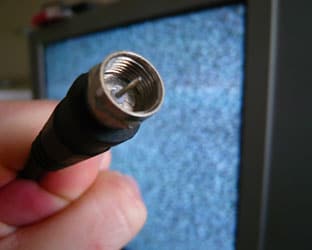The FCC finally got around to voting on opening up the white spaces between television stations in the late afternoon and ushered the item in with a nearly unanimous 5-0 bipartisan vote. Only Commissioner Deborah Taylor Tate kept it from being a completely clean sweep, objecting to one small part of the proceeding.
MSTV’s president/CEO David Donovan was immediately critical, saying that “The Commission chose a path that imperils American’s television reception in order to satisfy the ‘free’ spectrum demands of Google and Microsoft.”
High tech companies have been clamoring for access to the cracks between broadcast television stations, with the idea of bringing in wireless broadband and other devices. But broadcasters and many organizations that rely on wireless microphones have been adamant that the newcomers will not inject harmful interference into the spectrum.
Although so far tests that the while space devices (WSD) can operate safely have seemingly been negative, the FCC released a study claiming that proponents of the devices have met a “proof of concept” threshold, and seemed prepared to move ahead on the basis of that alone. Some sources were predicting a unanimous 5-0 commissioner vote in favor of moving forward.
The commissioners believe creation of a database listing the physical location of all incumbents in the spectrum, and the requirement that first generation WSDs include geolocation devices, will be sufficient to protect broadcast operations from interference. Devices using incumbent-sensing devices only will have to go through rigorous FCC testing before being cleared for use.
There has been a great deal of pushback from incumbents in the spectrum, supported by numerous letters from members of Congress, requesting at a minimum the opportunity to study and comment on the FCC’s lengthy engineering study.
Michael Copps called the item a “…careful threading of the needle between path-breaking new and tried-and-true old.” Both Kevin Martin and Robert McDowell spoke of new devices we can’t even yet imagine coming from entrepreneurs, and Jonathan Adelstein and Tate looked forward to rural communities bridging the digital divide with new access to wireless broadband.
Broadcasters and wireless mic users, on the other hand, are waiting for the first wave of WSD failures, wondering how even an expedited complaint process to go after the source of interference will help, if the device is unlicensed and difficult to track. Donovan promised to work with all parties to try to protect American viewers.
RBR/TVBR observation: We remain, as always, amazed that the FCC would be monkeying around in the TV space at all, in any way, no matter how insignificant, while the DTV transition is pending. The FCC has spoken, so if opponents of WSDs hope to stop this train, it looks like the next stop is Congress.




